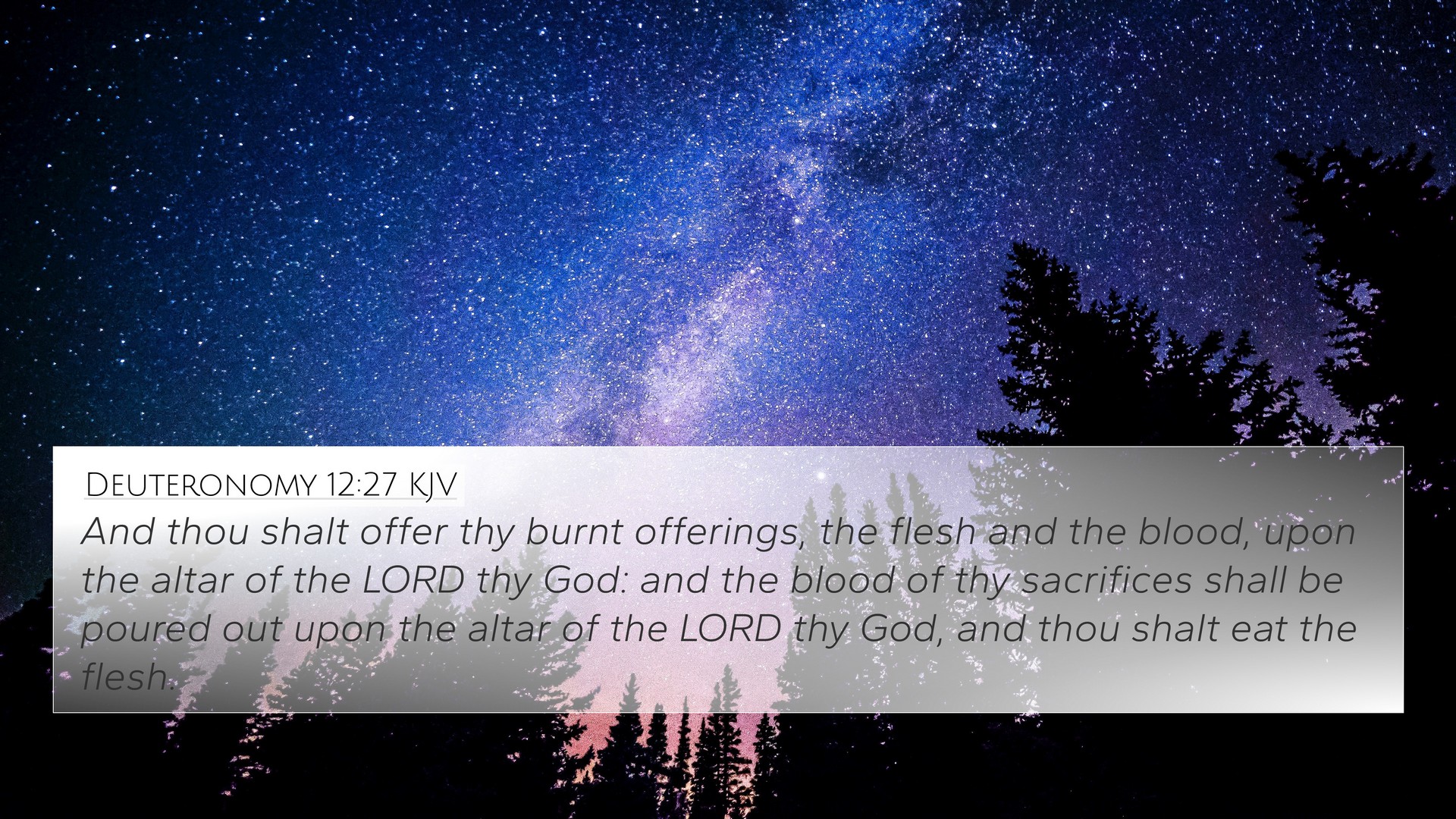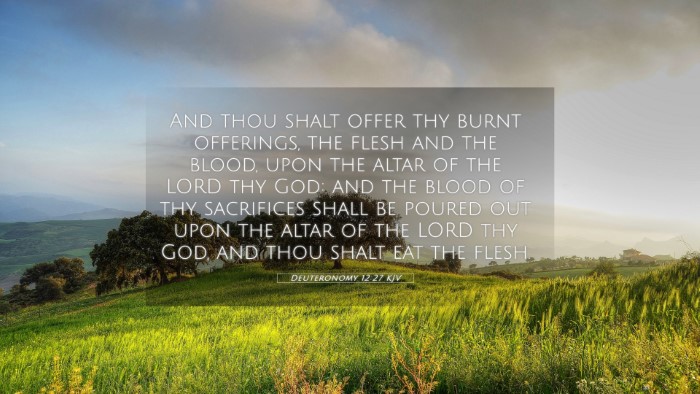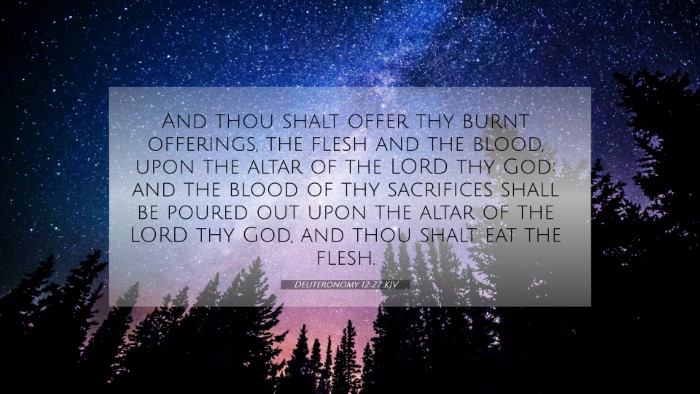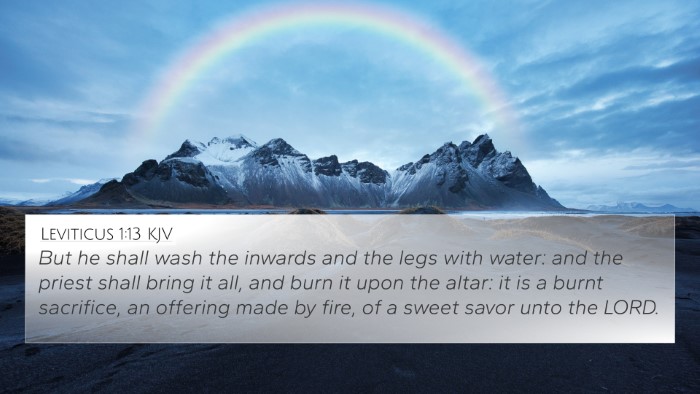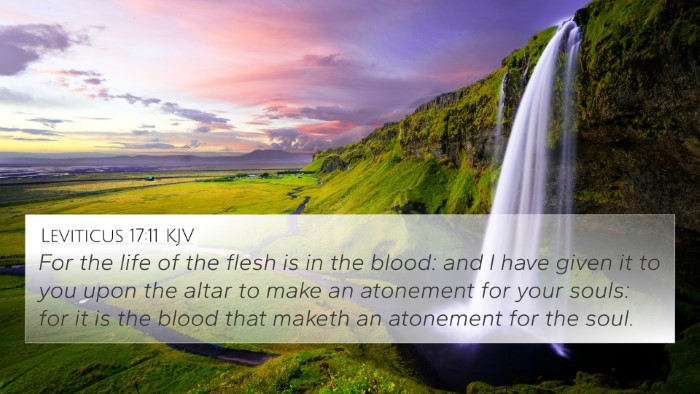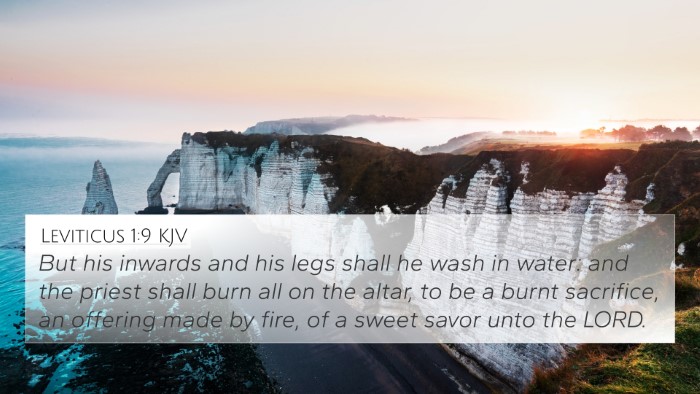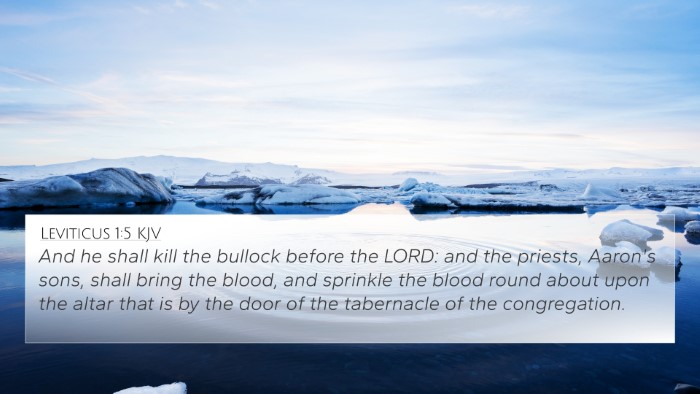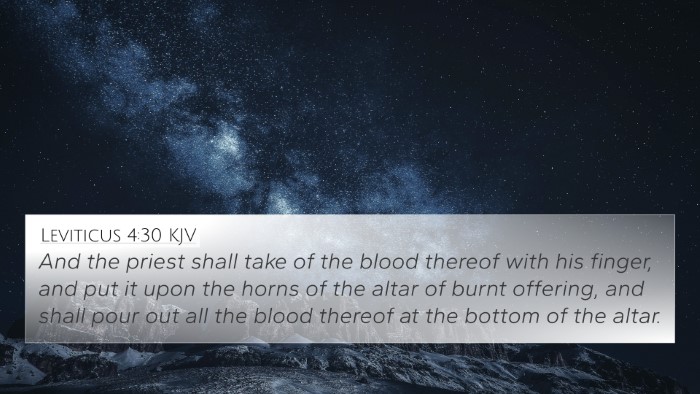Understanding Deuteronomy 12:27
Deuteronomy 12:27 states: "And thou shalt offer thy burnt offerings, the flesh and the blood, upon the altar of the LORD thy God: and the blood of thy sacrifices shall be poured out upon the altar of the LORD thy God, and thou shalt eat the flesh." This verse emphasizes the importance of sacrificial offerings within the context of the ancient Israelite worship system, particularly focusing on the rituals surrounding burnt offerings.
Summary of Key Interpretations
By examining this verse through various public domain commentaries, we derive several key interpretations:
- Matthew Henry: Henry notes that the offering of burnt sacrifices signifies complete devotion to God. The act of offering not only reflects obedience but also an acknowledgment of God's sovereignty and a means to seek atonement for sins.
- Albert Barnes: Barnes emphasizes the dual aspect of the sacrificial system: the shedding of blood represents the life of the animal being given in substitution for the worshipper, signifying the need for atonement and the seriousness of sin.
- Adam Clarke: Clarke highlights the communal aspect of the meal following the sacrifice, suggesting that it symbolizes fellowship with God following the act of offering. The accompanying rituals provide an opportunity for a deeper relationship with the Divine.
Theological Connections
Deuteronomy 12:27 establishes deep theological connections, particularly in regards to the themes of sacrifice and worship. These themes resonate throughout the scriptures:
- Leviticus 1:3: This verse outlines the procedure for burnt offerings, emphasizing the need for a perfect sacrifice.
- Hebrews 9:22: Here, it is stated that without the shedding of blood, there is no remission of sins, reinforcing the concept established in Deuteronomy.
- Romans 12:1: Paul urges believers to present their bodies as living sacrifices, connecting ancient practices to Christian worship.
- 1 Peter 2:5: This verse compares believers to living stones, being a holy priesthood, offering spiritual sacrifices to God.
- Malachi 1:11: In this verse, the Lord expresses a desire for pure offerings from all nations, pointing towards the universal significance of worship.
- Exodus 24:8: This alludes to the covenant established through blood, illustrating the binding nature of divine agreements.
- Matthew 26:28: Jesus speaks of His blood which is shed for many, tying the sacrificial themes of the Old Testament to the New Covenant.
- John 1:29: John the Baptist identifies Jesus as the Lamb of God, correlating Him with the sacrificial system of the Old Testament.
- Revelation 5:9: This verse highlights the redemptive power of Christ’s blood, uniting people across nations as part of a greater sacrifice.
Practical Applications and Modern Insights
Understanding Deuteronomy 12:27 can lead to a more profound comprehension of the significance of worship and sacrifice in both the Old and New Testaments. For contemporary believers, this can encourage:
- Reflections on what it means to offer one's life to God as a living sacrifice in modern worship contexts.
- The importance of understanding the Bible's sacrificial system and how it relates to the redemptive work of Christ.
- Engaging in communal worship practices that reflect the shared fellowship established in sacrificial offerings.
Tools for Bible Cross-Referencing
For deeper study and analysis, utilizing tools for Bible cross-referencing can be immensely beneficial. These include:
- Bible Concordance: A comprehensive tool to locate verses and their connections.
- Bible Cross-Reference Guide: Helps readers easily find related scripture verses across both the Old and New Testaments.
- Cross-Reference Bible Study: A methodology by which readers can systematically analyze the many interconnected themes and verses.
- Comprehensive Bible Cross-Reference Materials: Books and resources that elaborate on intricate connections between scripture passages.
Conclusion
In summary, Deuteronomy 12:27 serves as a foundational text that emphasizes the importance of sacrificial worship in the life of an Israelite. Its ramifications are seen throughout the entirety of scripture, informing modern theological understandings and worship practices. By studying this verse and its connections, believers can cultivate a richer, more nuanced faith that acknowledges the historical roots of their worship while embracing its contemporary implications.
Further Reflection
As you reflect on Deuteronomy 12:27, consider the following:
- What does it mean for you to offer your life as a living sacrifice?
- How can understanding the sacrificial system enhance your relationship with God?
- In what ways can you incorporate the principles of communal worship in your own practices?
